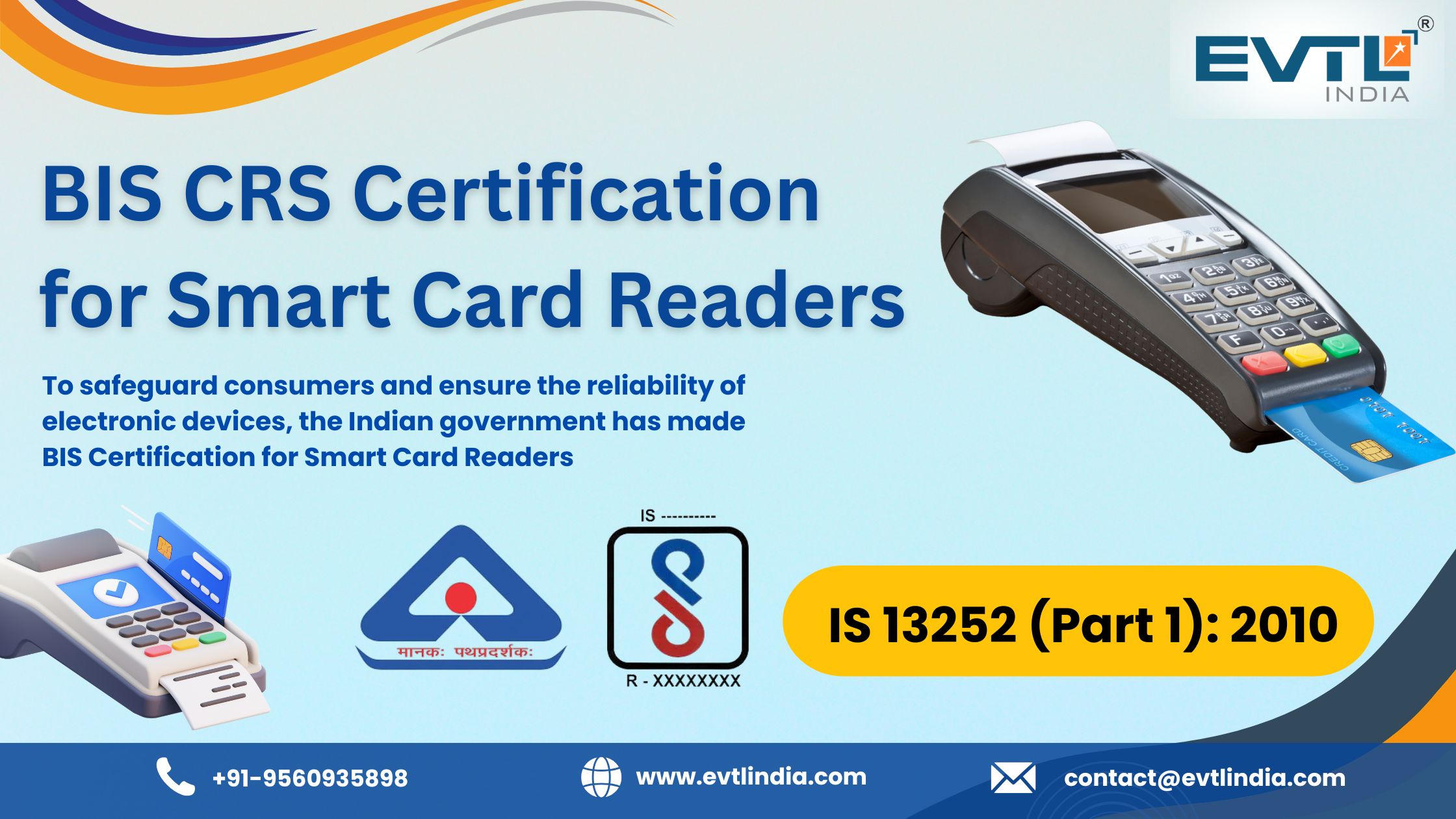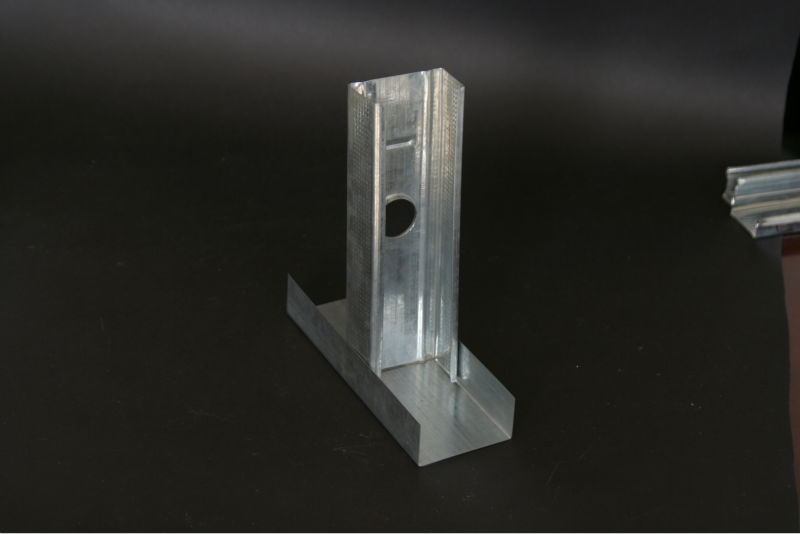India is rapidly moving toward digitalization, with smart card technology playing a crucial role in sectors like banking, telecom, transportation, and government services. Devices such as smart card readers are essential for secure authentication and data transactions.
However, before these devices can be sold in the Indian market, they must comply with the Bureau of Indian Standards (BIS) requirements.
To ensure product reliability and consumer safety, BIS Certification for Smart Card Readers has been made mandatory under the Compulsory Registration Scheme (CRS).
For both domestic and international manufacturers, this certification is not just about compliance—it’s about trust, credibility, and market readiness.
What is BIS Certification for Smart Card Readers?
The Bureau of Indian Standards (BIS) introduced the Compulsory Registration Scheme (CRS) in collaboration with the Ministry of Electronics and Information Technology (MeitY).
This scheme mandates certification for various electronic devices, including smart card readers.
Under this framework:
- Manufacturers must get their products tested in BIS-recognized laboratories.
- Products must comply with the prescribed Indian Standards (IS).
- After successful testing and verification, BIS grants the CRS registration, allowing the use of the BIS CRS mark on the product.
✅ BIS CRS for Smart Card Readers ensures that devices meet India’s strict safety and quality benchmarks.
Why is BIS CRS Registration Mandatory for Smart Card Readers?
Smart card readers handle sensitive data across critical sectors such as finance, e-governance, and telecom.
Any compromise in safety or performance can lead to significant risks.
Therefore, BIS CRS Registration is compulsory for all smart card readers.
Key Reasons for Mandatory Registration
- Data & Consumer Safety: Prevents issues caused by insecure or faulty devices.
- Legal Compliance: Non-registered products cannot be sold, imported, or distributed in India.
- Market Access: Customs clearance for imports requires a valid BIS CRS registration.
- Brand Credibility: BIS-certified devices are trusted by customers and preferred by government organizations.
Indian Standards for Smart Card Readers
Smart card readers fall under the CRS category for electronic and IT equipment.
The relevant Indian Standard is:
- IS 13252 (Part 1): 2010 – Information Technology Equipment – Safety – General Requirements
Every smart card reader must comply with this standard before BIS registration is approved.
BIS CRS Process for Smart Card Readers
Getting BIS Certification for Smart Card Readers involves a systematic and step-by-step procedure.
Step-by-Step Process
- Identify Applicable Standards
- Confirm compliance with IS 13252 (Part 1): 2010.
- Confirm compliance with IS 13252 (Part 1): 2010.
- Product Testing
- Submit samples to BIS-recognized labs for safety and performance testing.
- Submit samples to BIS-recognized labs for safety and performance testing.
- Documentation
- Prepare technical details, manufacturing records, and product specifications.
- Prepare technical details, manufacturing records, and product specifications.
- Application Filing
- Submit the online application via the official BIS portal.
- Submit the online application via the official BIS portal.
- BIS Evaluation
- BIS verifies test reports, product details, and documents.
- BIS verifies test reports, product details, and documents.
- Grant of Registration
- After approval, BIS issues the Registration Certificate, allowing use of the BIS CRS mark.
- After approval, BIS issues the Registration Certificate, allowing use of the BIS CRS mark.
- Renewal & Surveillance
- Certification is valid for two years and must be renewed.
- BIS may conduct audits or inspections to ensure ongoing compliance.
- Certification is valid for two years and must be renewed.
Challenges Manufacturers Face During BIS CRS Registration
Even though the process is structured, manufacturers—especially foreign ones—may face difficulties such as:
- Confusion regarding the applicable Indian Standard.
- Delays in product testing or test report validation.
- Documentation errors during the application process.
- Language and communication barriers with BIS authorities.
- Renewal lapses causing compliance issues.
These challenges can delay market entry, which is why many companies rely on professional BIS Consultants.
Role of a BIS Registration Consultant
A BIS Registration Consultant acts as a strategic partner to simplify the entire certification journey.
Key Responsibilities
- Advising on relevant standards and BIS CRS requirements.
- Coordinating product testing with BIS-approved labs.
- Preparing and submitting accurate applications.
- Liaising with BIS officials for smooth approvals.
- Assisting in renewals, audits, and post-certification compliance.
For foreign manufacturers, consultants also help appoint an Authorized Indian Representative (AIR)—a mandatory step for BIS applications.
Why Work with a BIS CRS Consultant for Smart Card Readers?
Smart card readers are highly sensitive devices used in secure environments.
Ensuring error-free certification is vital, and that’s where a BIS CRS Consultant adds value.
Benefits of Hiring a Consultant
- Time Efficiency: Quicker approvals reduce launch delays.
- Cost Effectiveness: Prevents rejections that cause repeated testing.
- Updated Knowledge: Stay aligned with latest BIS guidelines.
- Simplified Imports: Streamlined compliance for global brands.
Benefits of BIS Certification for Smart Card Readers
Once certification is obtained, manufacturers gain multiple business and compliance benefits.
Key Advantages
- Legal Authorization: Enables import, sale, and distribution across India.
- Market Acceptance: Builds trust and brand value.
- Business Growth: Opens opportunities in India’s booming electronics market.
- Competitive Edge: BIS-certified products stand apart from uncertified ones.
Conclusion
EVTL India is one of the leading BIS Consultants in India, helping manufacturers obtain BIS licences with ease.
As India’s digital economy expands, smart card readers are becoming essential for secure transactions and identity verification.
However, to access this growing market, BIS Certification for Smart Card Readers under the CRS scheme is mandatory.


